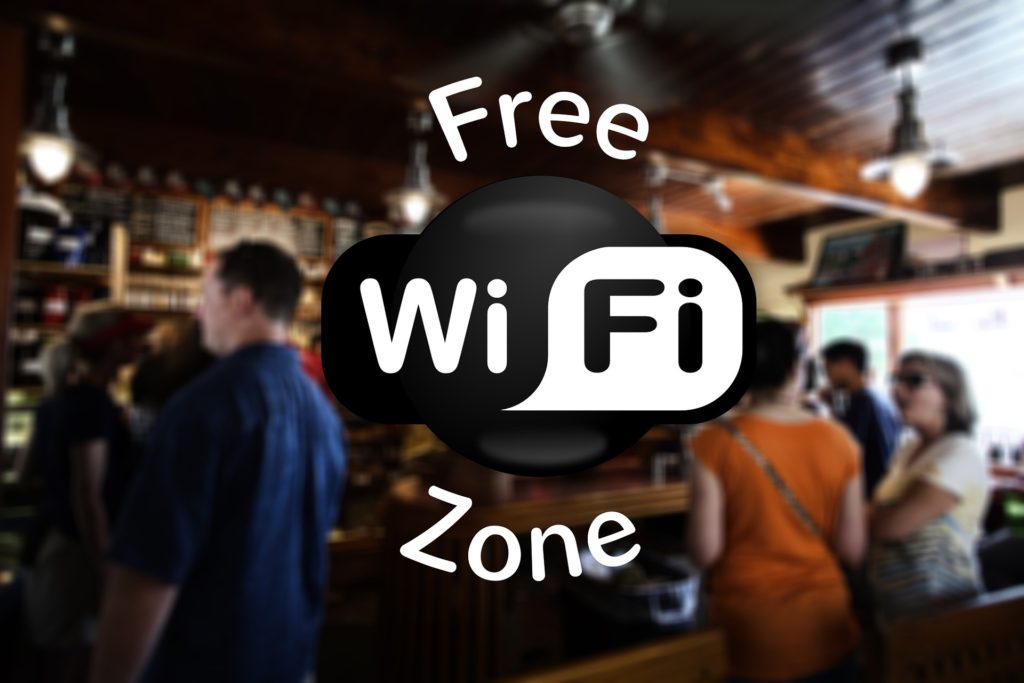
As more and more information becomes available online, people naturally feel the need to stay connected to the internet at all times. So much so, that when at home we connect to unlimited Wi-Fi connections and when we’re on the move, we have Internet connectivity activated on our smart phones. Additionally, many of us also plug into public Wi-Fi connections available at market places, shopping malls and generally anywhere we go. Even on airports, college campuses, and train stations people can be found connected to public Wi-Fi connections. While doing so isn’t a bad idea if you wish to save a few bucks or some bandwidth from your phone’s data connection, it’s important to realize that public Wi-Fi connections might be prone to dangers such as hacking, password thefts and the like.
Connecting to free Wi-Fi everywhere comes with its fair share of risks
Free Wi-Fi connections are mostly shown as “unsecured” by your devices. What this “unsecured” means is that such connections are not protected by any passwords. Anyone within their range can connect to them. One way of looking at this idea is to provide convenience, for instance, connections at libraries, airports etc. However, not everything that comes for free is good. Some people might deliberately make their Wi-Fi hotspots “unsecured” so that they can look into the information of people who connect to their connection. While such “peeking toms” might not be able to cause you any major damage if you are researching on Wikipedia, they will be able to strike serious blows if you open your social networking accounts or bank accounts over such networks.
How public Wi-Fi can harm you
Some of the most dangerous situations people can end up in if using public Wi-Fi:
- Hacking of social networking accounts (the next time you try to log in you could be barred from accessing your own account; also, you know how much damage a fake identity can do to you)
- Stealing bank account credentials (no need to explain that!)
- Hacking into your employee account and subsequent identity theft (that could be professionally as well as personally disastrous)
- Looking at confidential information you might be sharing with a work client (you could end up with several legal allegations)
So what should you do?
To ensure that you’re playing safe even while accessing a public Wi-Fi connection, here are a few simple checks that you can perform before accessing critical websites.
- Ensure the websites you visit are secured (just check that the website name starts with HTTPS or your device anti-virus doesn’t flag it)
- Try to access the Internet through a Virtual Private Network (VPN)
- Safeguard your device with an up-to-date anti-virus and firewall
- Disable automatic file sharing
- Confirm the authenticity of the network from its provider (for instance, the airport or library internet service provider)
- Use two-way authentication mechanism for your passwords (extremely beneficial in transactions involving money)
The best approach
The next time you are tempted to connect to a public Wi-Fi, be aware of what you are stepping into. Even a simple app download could be a trap inviting a hacker to look into your device. Also, try to refrain from connecting to Wi-Fi connections available in coffee shops if you want to kill time. Such open connections are favorites among people who wish to steal your identity on social networking sites. You wouldn’t want to see something undesirable posted online under your name. Moreover, refrain from buying anything online through a public Wi-Fi connection since the moment you enter your credit card details, you might be in for a surprise.
Stay aware, stay safe!